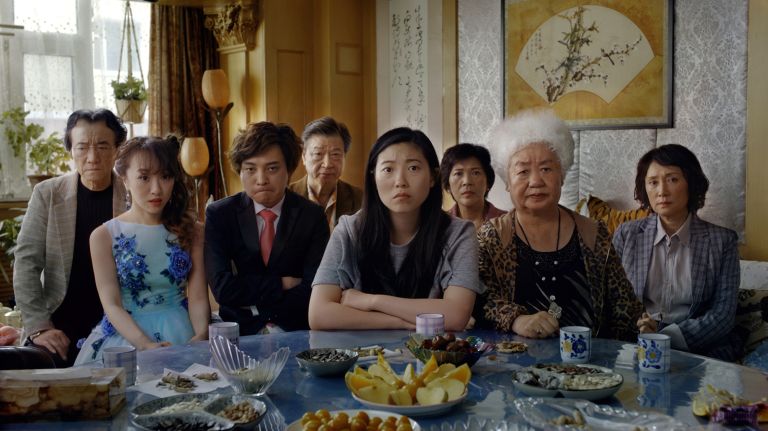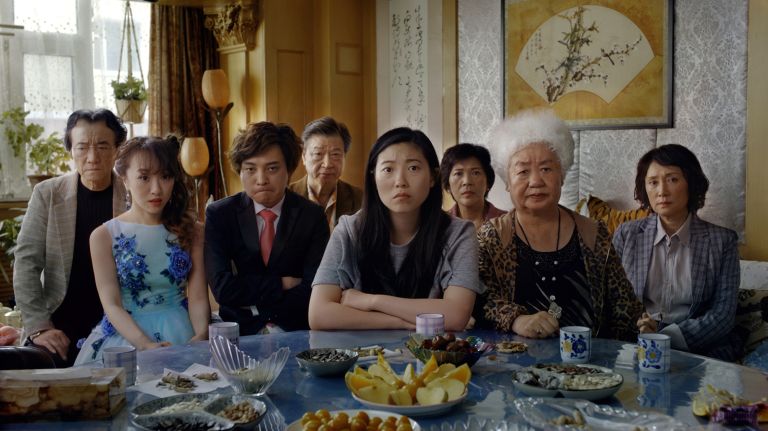
‘The Farewell’
Directed by Lulu Wang
Starring Awkwafina, Tzi Ma, Diana Lin
Rated PG
"The Farewell" is a rare and rewarding gem, a movie that trades in pauses and silences and understands that it’s the space in between that so often defines our lives.
We’ve seen a lot of family dramedies with the same basic shape and format as Lulu Wang’s lovely, understated masterwork. But we know what to expect, generally speaking, from these tales of long-lost families reuniting around a major life event, and this movie painstakingly avoids all of the familiar dysfunctional tropes.
It is the story of a Chinese family gathered ostensibly for a wedding but really to say goodbye to their matriarch, Nai Nai (Zhao Shuzhen), who has been diagnosed with terminal cancer but does not know it thanks to the family’s collective agreement that she shouldn’t.
The events are seen through the eyes of granddaughter Billi (Awkwafina, who is a true revelation here), born in China but raised in New York City, and her grappling with the morality of this deception serves as an affecting way into the movie’s larger, more complicated mission, which is to unpack the ways these characters confront and process their often conflicting cultural identities.
The filmmaker and cinematographer Anna Franquesa Solano embrace the comedy that underpins the movie through smart framing choices that transition from close-ups to wider shots of the group, often in rooms that are just a bit too small or set against backdrops that are a little bit absurd.
"The Farewell" is made with a keen eye for the nuances of human behavior — Awkwafina invests details as seemingly insignificant as Billi’s physical posture with a wealth of meaning and the actors as a whole ably convey a lifetime of difficulty and resentment without making anything too obvious.
Wang’s writing is extraordinarily precise and honest, capturing the complex mixture of feelings that arrive at such a seminal moment. There’s sadness, of course, but also anticipation of what life will be like after such a paradigm shift. There’s the loneliness of being caught between two worlds — between life and death, in Nai Nai’s case, and between the U.S. and China in Billi’s — and the unmistakable warmth and happiness of home.







































